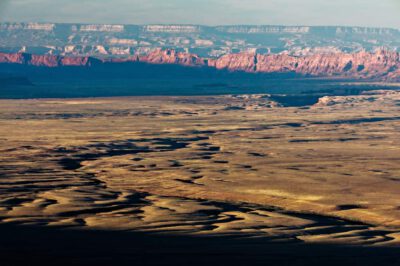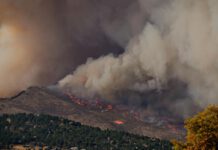
GRAND CANYON NATIONAL PARK, Ariz.— President Biden used the Antiquities Act today to designate the Baaj Nwaavjo I’tah Kukveni – Ancestral Footprints of the Grand Canyon National Monument in northern Arizona, permanently protecting nearly 1 million acres of public land surrounding the iconic national park. Proposed to the Biden administration by the Grand Canyon Tribal Coalition, Baaj Nwaavjo means “where tribes roam” for the Havasupai Tribe, and I’tah Kukveni means “our ancestral footprints” in Hopi.
“With this historic designation, President Biden is permanently safeguarding the magnificent rimlands that flank the Grand Canyon, their rich biodiversity, and life-giving springs and aquifers,” said Taylor McKinnon, Southwest director at the Center for Biological Diversity. “On behalf of our members and supporters, the Center for Biological Diversity extends our deepest gratitude to Havasupai, Hopi, Navajo and other Tribal leaders who have sought land protections for generations, and to the president for heeding their wisdom and leadership.”
The country’s newest monument enjoys widespread public support in Arizona, in addition to backing from regional businesses, governments and elected officials. It harbors sacred sites, like Red Butte, and its diverse ecology includes federally protected species like California condors and many plants found nowhere else on Earth. The monument encompasses ancestral homelands of several regional Tribes and is the culmination of efforts since 2008 to permanently protect Grand Canyon’s adjoining landscapes from new uranium mining.
The monument boundary is similar to the 2012 Northern Arizona withdrawal adopted by President Obama that banned new uranium mines around Grand Canyon for 20 years. Federal legislation, introduced by never passed, would have made those protections permanent.
Uranium mining around the Grand Canyon has damaged sacred sites and depleted and polluted aquifers that feed the iconic canyon’s springs and streams. Today’s declaration permanently bans new mines. Uranium mining on claims predating the 2012 withdrawal, like the Pinyon Plains mine near Grand Canyon’s South Rim, are exempt and still threaten the region’s aquifers, springs and cultural heritage.
The Grand Canyon Tribal Coalition is comprised of the Havasupai Tribe, Hopi Tribe, Hualapai Tribe, Kaibab Band of Paiute Indians, Las Vegas Band of Paiute Indians, Moapa Band of Paiute Indians, Navajo Nation, Paiute Indian Tribe of Utah, San Juan Southern Paiute Tribe, Pueblo of Zuni, and Yavapai-Apache Nation.
Center for Biological Diversity
biologicaldiversity.org












